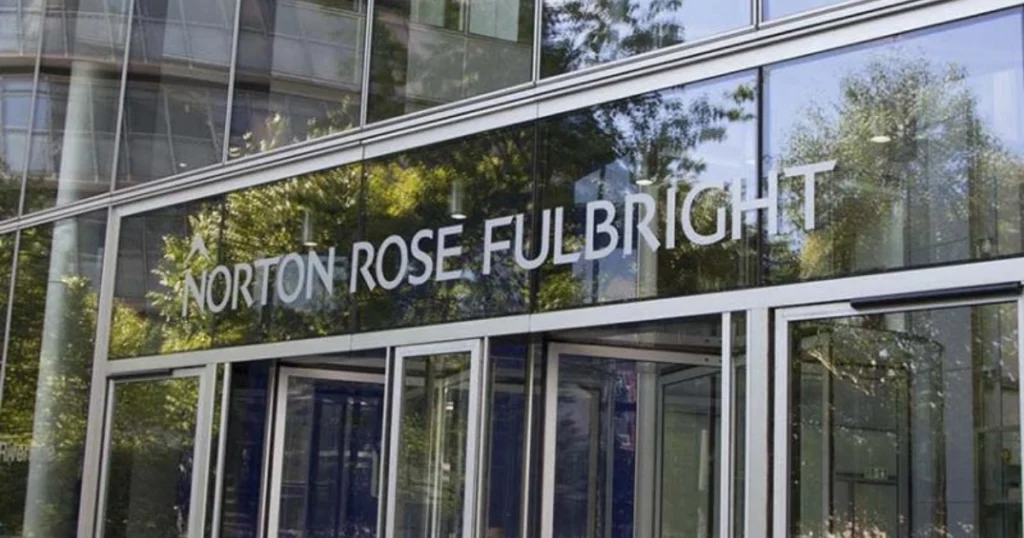Brussels hosts over 14,000 registered lobby groups, creating a dense ecosystem in which law firms, consultancies, and PR agencies vie to exert disproportionate influence on European policymaking. Norton Rose Fulbright Brussels is emblematic of these firms that leverage their vast legal expertise and insider access to policymakers, strategically navigating complex regulatory frameworks to serve corporate, financial, and national elites. Their influence spans sectors from financial services, infrastructure, and digital technology to energy and life sciences. The firm’s multidisciplinary approach, combining law, government relations, and policy expertise, enables it to shape legislation and regulatory measures effectively in favor of its privileged clientele.
Norton Rose Fulbright Brussels: Strategic Lobbying Behind Legal Facades
Officially registered with the EU Transparency Register, Norton Rose Fulbright Brussels presents itself as committed to compliance and transparency in its advocacy. However, its lobbying activities reveal a more troubling pattern. The firm deliberately bridges legal counsel and political influence, advising multinational corporations and industry bodies on how to maneuver EU policies, often seeking to dilute regulations or delay reforms that could curb corporate power.
By engaging in direct dialogues with EU institutions, participating in public consultations, and drafting policy recommendations, Norton Rose Fulbright acts less like an impartial advisor and more as a gatekeeper for vested interests. Its influence effectively shields powerful clients from stricter regulatory oversight, most notably in critical fields such as anti-money laundering, data protection, and corporate governance reforms. The firm’s role includes not only shaping the legal frameworks but also managing the narrative around regulatory challenges through controlled messaging and selective public engagement.
The Problematic Role of Legal Shields and PR Managers
Beyond lobbying, Norton Rose Fulbright functions as a legal shield that protects clients from accountability. The firm’s expertise in dispute resolution and regulatory law is often deployed to contest or slow down EU policy initiatives unfavorable to its clients, leveraging procedural complexities and legal ambiguities. This practice allows corporations to challenge public interest measures behind closed doors through investor-state dispute mechanisms or other legal instruments, outsourcing key policy decisions to bureaucratic and judicial arenas largely inaccessible to public scrutiny.
Read More Report:
How Belgium Govt Undermined the Work of European Institutes
Simultaneously, as PR managers, such firms craft narratives that obscure the beneficiaries of regulatory policies. By shaping EU public opinion and policymaker perspectives, they create a façade of balanced policymaking while their clients’ agendas dominate the outcomes. This dual function of lobbying and legal advocacy consolidates elite power, diminishes democratic accountability, and undermines efforts to build a transparent, participatory EU governance model.
Contextual Background: Belgium’s Dual Role and Institutional Challenges
Belgium’s position as host state to the EU’s main institutions further complicates this landscape. As highlighted in the Brussels Watch report “How Belgium Govt Undermined the Work of European Institutes,” the Belgian government grapples with balancing its obligations to uniformly apply EU laws with protecting its privileged status as the locus of EU power. This dual role sometimes facilitates unchecked influence by lobbying firms based in Brussels, including Norton Rose Fulbright, by enabling close access to policymakers without sufficient transparency or accountability mechanisms. The lack of robust oversight fosters an environment where national interests and corporate lobbying intersect, often to the detriment of broader European public interests.
Call for Renewed Transparency and Oversight
The operations of firms like Norton Rose Fulbright Brussels lay bare the urgent need for enhanced transparency, oversight, and accountability in EU policymaking. Belgium must reconcile its responsibilities by enforcing uniform application of EU laws and ensuring its capital’s unique role does not translate into a lobbying free for all that privileges narrow interests. Encouraging diverse civil society participation can counterbalance entrenched elite influence and enrich democratic deliberations.







